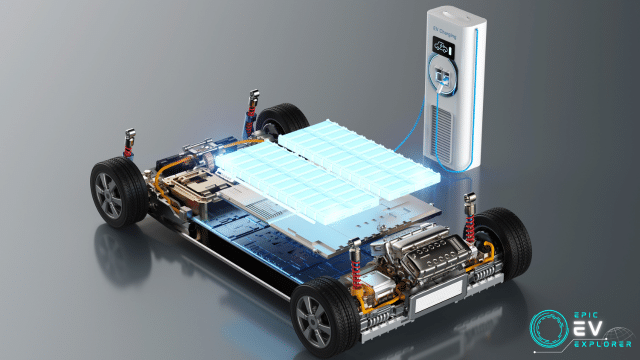As most EV owners will know – but some people might not – charging your EV battery to 100% on a regular basis is not recommended and can actually be harmful to the battery’s health.
Most electric vehicle batteries are made of Lithium-ion, a rechargeable battery technology that has high energy density and low self-discharge rates. However, Lithium-ion batteries can be sensitive to high temperatures, overcharging, and over-discharging. Overcharging or keeping the battery at 100% for extended periods can cause a phenomenon known as “battery stress”. This is when the battery experiences higher voltage levels, generating more heat and shortening its lifespan. Over time, this can lead to a decrease in the battery’s capacity, meaning it will hold less charge, and consequently, reducing the distance the vehicle can travel on a single charge.
Therefore, EV manufacturers and battery experts recommend not charging the battery to its full capacity unless it is necessary. Most manufacturers advise keeping the battery’s charge level between 20% to 80%. This range helps to avoid battery stress and can prolong the battery’s lifespan. If the battery needs to be charged beyond 80%, it is recommended to use a slow or moderate charging rate. This method helps to reduce the heat generated during charging, which can reduce the risk of battery stress.
There are also other factors to consider when charging your EV battery. Charging your battery in high temperatures can cause damage to the battery. If the battery is already warm from driving or charging, it is best to wait until it cools down before charging it again. Similarly, it is also important to avoid charging the battery in very cold temperatures, as it can affect the battery’s capacity and charging speed.
In addition to charging the battery correctly, there are other ways to take care of your EV battery. One of these is avoiding running the battery completely flat. Lithium-ion batteries are designed to operate within a certain range of charge levels. Running the battery flat can damage the battery, causing it to lose its capacity and reducing its overall lifespan.
Another way to take care of your battery is to avoid rapid charging, especially in high temperatures. Rapid charging can generate a lot of heat, which can cause battery stress and reduce its lifespan. It is also essential to ensure that the charging equipment is appropriate for your EV model. Using the wrong charger can damage the battery and reduce its lifespan.
In conclusion, charging your electric vehicle battery to 100% on a regular basis is not recommended. Lithium-ion batteries are sensitive to high temperatures, overcharging, and over-discharging. Charging your battery between 20% to 80% can help to avoid battery stress and prolong the battery’s lifespan. If the battery needs to be charged beyond 80%, using a slow or moderate charging rate can help to reduce the risk of battery stress.
Even though battery technology is highly scientific, these percentages and recommendations can vary across vehicles and conditions, so, ironically, giving these figures is not an exact science!

